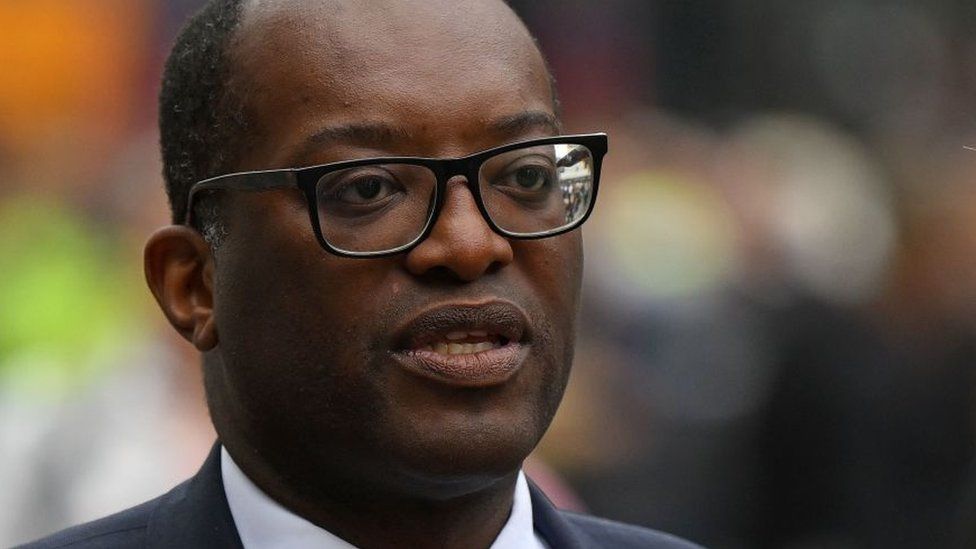The UK Treasury has refused to release its economic projections. No economic prognosis for the UK will be released by the Treasury in conjunction with this Friday’s mini-Budget.
According to BBC reports, the independent forecaster Office for Budget Responsibility (OBR) has already delivered a draught to Chancellor Kwasi Kwarteng.
Given recent government actions to reduce living costs, the Treasury Select Committee said a projection is “essential.”
To take action to limit annual energy bills might cost around £150bn, and tax cuts are planned on Friday.
At the mini-Budget, the government is anticipated to roll back a National Insurance increase and cancel a planned increase in company tax that could have raised £30 billion.
The OBR’s preliminary projection does not include stimulus aid for energy costs. As a result, it has offered to provide a projection that takes this effect into account but has had its proposal declined.
In light of forecasts predicting a protracted recession in the UK, the offer’s lack of acceptance has raised questions about whether the government is “flying blind” with its tax and spending policy.
To ensure the release of an OBR projection, members of Parliament’s Treasury Select Committee wrote to the chancellor on Tuesday.
According to Mel Stride, the committee’s chairman, “these estimates are a critical measure of the health of the nation’s finances and provide reassurance and confidence to worldwide markets and investors.”
“The economic prognosis has worsened since the OBR’s latest forecast in March. Since then, there have been substantial fiscal interventions, and on Friday, it’s expected that more dramatic measures, such as large, permanent tax cuts, will be announced.
The provision of an impartial OBR forecast is crucial in the current conditions.
Both the Autumn Budget and the Spring Statement require economic estimates from the OBR.
As of this coming Friday, there will be no third-party analysis of whether or not the permanent tax cuts and some one-time spending increases are in line with the government’s Budget regulations.
The government’s goal of raising the trend rate of growth to 2.5% is dependent on the Office of Budget and Review’s (OBR’s) ability to accurately predict the effects of the new tax measures on economic expansion.
When asked about this topic, a Treasury Department spokesperson said: “In light of the extraordinary circumstances under which our nation finds itself, we have moved with remarkable promptness to provide substantial energy bill support for households and businesses, and we are acting swiftly to set out further plans to kickstart economic growth later this week.
It is our firm intention to stick to our standard practice of making two separate predictions for the current fiscal year.
The Office of Budget and Review (OBR) released its most recent long-term forecast in July, stating that trend growth had slowed from 2.2% to 1.4%.
It is widely expected in the City that the Treasury will soon have to publicly increase its “remit” for borrowing as the value of the pound sterling has dropped in recent weeks, causing borrowing costs for the UK government to rise.
The Debt Management Office is issued the Financing Remit after a borrowing projection has been made. The Bank of England plans to sell some of the gilts it owns as it begins to reverse its long-running program of stimulus, so any additional sales of government loans (known as gilts) will need to be coordinated with this move.
According to sources within the government, the primary goal of Friday’s announcements was to expeditiously put into effect the PM’s leadership campaign promises, and a more comprehensive prediction will be released in conjunction with the next Budget statement.
For instance, gas prices on the open market and the government’s capacity to renegotiate pricey contracts for renewable energy might have a significant impact on how much the energy package ultimately costs.

